#manga and stuff recommends stuff
Explore tagged Tumblr posts
Text
Thoughts on: Ikoku Nikki
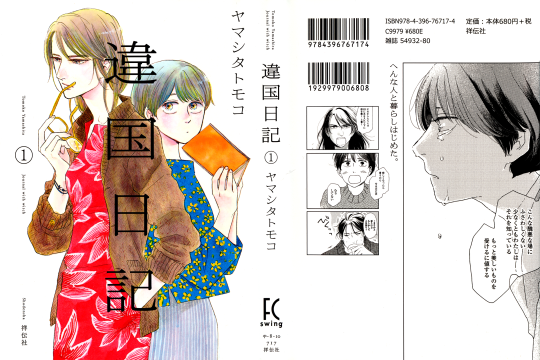
I am currently reading Ikoku Nikki by Tomoko Yamashita and I noticed that like a solid quarter of the scenes in this manga do absolutely nothing to drive the plot forward.
It's not even funny banter or world building or whatever, it's literally just mundane little scenes like this:

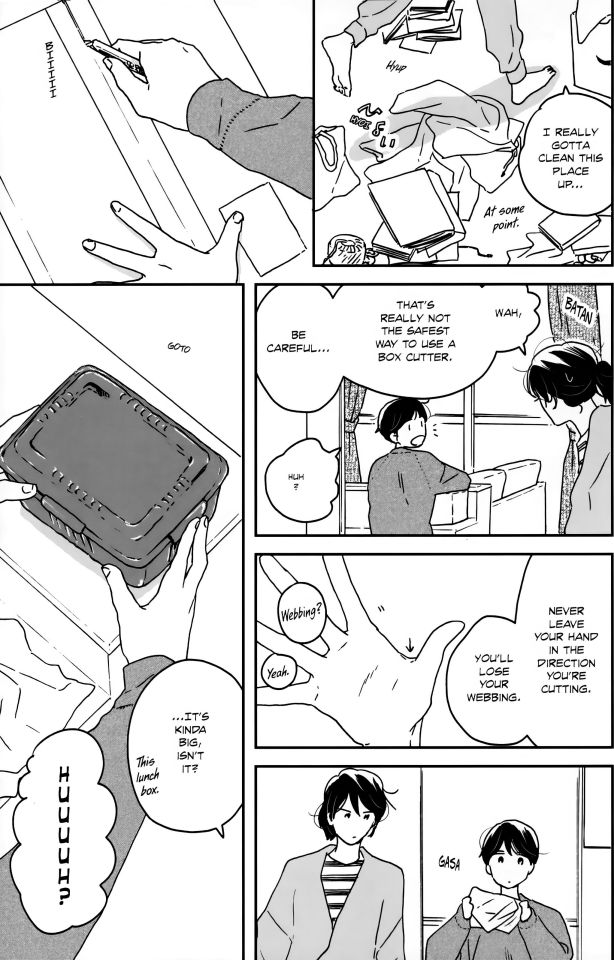
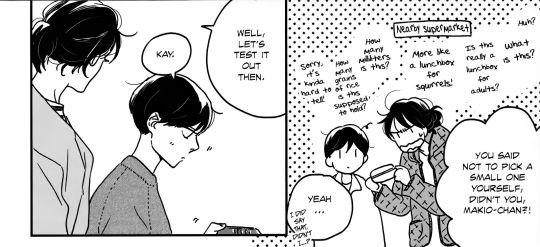
You could honestly skip all of these scenes, and the plot would still make just as much sense.
But the thing is, I think doing so would make this manga considerably worse.
The manga is about a 15-year-old girl being taken in by her very introverted aunt, after losing her parents in an accident. And these mundane little scenes do an incredible job of grounding the whole story.
For one thing, it fleshes out the characters, it makes them feel real. You can really believe they all have their own lives with their own thoughts and feelings, their own problems and worries which are largely unrelated to the main plot.
It also makes the story feel very realistic. Like, yeah, sorry your parents just died, but you still need to go to school and worry about stuff like fucking lunchboxes. Yes, you just took in your orphaned teenage niece, but you still need to work... and maybe tidy up your room?
Just like in real life, the rest of the world in this manga doesn't care that the main character's world just got turned upside down. The earth just mercilessly keeps on spinning, and the protagonist has to go on living somehow, with all the mundanity and irrelevancy that comes with everyday life.
#Ikoku Nikki#Tomoko Yamashita#manga and stuff recommends stuff#it's also hands down the best manga I read in a long time#just wanted to make that clear in case it didn't come across in my little analysis#also love how the manga focuses on how you can never truly understand somebody else no matter how hard you try#because they're a different person#but also how you should still try to understand them regardless#and how it's not up to you to decide whether or not your actions hurt another person's feelings#it's up to them and only them#last but not least that's solid advice about using a box cutter
76 notes
·
View notes
Text

#witch hat atelier#tongari boushi no atelier#kamome shirahama#anime and manga#manga#manga aesthetic#manga art#manga and stuff#manga screenshots#manga blog#manga panel#manga screencap#manga caps#manga recommendation#mangacore#seinen manga#mangacap#personal
3K notes
·
View notes
Text

#anime and manga#anime manga#anime fandom#horror#anime#anime recommendation#manga anime#berserk art#guts berserk#berserk manga#berserk#berserk anime#me and who#funny#kawaii#animation#like#lol#manga art#manga recommendation#manga aesthetic#manga and stuff#manga adaptation#anime art#anime aesthetic
479 notes
·
View notes
Text
name: THE NEW RECRUIT
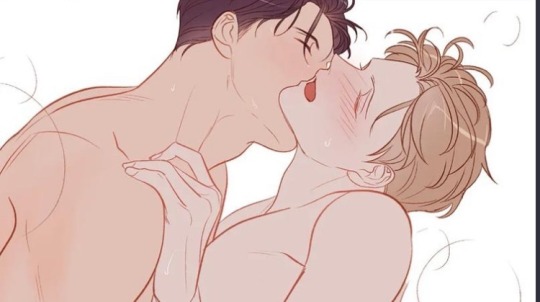

#the new recruit#yaoi#yaoi bl#manga#yaoi manhwa#boys love#lgbt#lgbtq#gay#gaypride#manga yaoi#yaoi love#yaoi manga#yaoi comic#yaoi memes#manhwa bl#manga bl#bl manhwa#bl manga#bl recommendation#colored manga#manhua#manhwa#manga aesthetic#boys love manga#manga and stuff#boys love anime#anime boys#shounen ai couple#gay ships
899 notes
·
View notes
Text
>see a manga called "shota x oni" with a super cute cover, artstyle and premise
>click on the first chapter
>read a few dozen chapters, and the story starts to pick up
>see this disclaimer at the beginning of the next chapter

>do a double take
>click back to the main page
>the manga is indeed called "shota x oni"
>click back to the chapter

>click back to the main page
>the manga is indeed tagged "shounen ai" aka romance between males
>click back to the chapter
>read many more chapters
>see this panel

>...
>laugh
>this story is shotacon
#no but why are antis so pressed and afraid of things they like and think are cute being the bad stuff™#this made me genuinely feel bad for that anti that can't enjoy this manga without screaming THIS ISN'T SHOTA#like live your best life bestie this shit fire#like shota x oni is such a cute manga i highly recommend#proship#anti anti#profiction#profic#pro fiction#proshipper safe#proshipping#proshippers are valid#proship friendly#proshippers please interact#proshipper#proship please interact#proship safe
401 notes
·
View notes
Text
“My Dress Up Darling” is one of the best examples of how perspective is important to character development and the story. Because if you think about it, MDUD is a love story between two protagonists. Both Marin and Gojo fulfill the role of the “average” MC and the person who is out of the MC’s league. It’s like this:
From Gojo’s POV, he’s the social outcast loser who fell hard for the gorgeous, popular, cool girl at school. He can’t fathom why this super cool girl wants to hang out with him, but he’s willing to do whatever it takes to keep their friendship going. Even though he’s crushing hard on her, he thinks he doesn’t have a chance with her, thus his focus is just to maintain their friendship.
From Marin’s POV, she’s the weird, lovable nerd who is a klutz and constantly embarrasses herself. She then falls hard for this sensitive, handsome artist who takes care of her needs (like cooking her delicious, healthy meals). The artist also agrees to make her dreams come true - cosplaying - by designing clothes for her FOR FREE, which makes her fall even harder for the artist.
This is also why I believe the story really gets going after the Shizuka arc. Once you start seeing the story more from Marin’s POV, Marin starts coming off as more of the “average” person while Gojo becomes more of the dreamboat. It’s fascinating because both perspectives work. Marin IS super cool and a klutz. Gojo IS a social outcast and a handsome, sensitive artist. It makes for a fun dynamic, especially when the story switches POVs.
Also, this helps flesh the characters out. I feel like MDUD would not be anywhere near as successful if it didn’t do the switches to Marin’s POV. If the story didn’t, then Marin would just be another manic pixie dream girl there for Gojo’s development, which would be lame. Ironically, Marin’s character becomes more lovable and interesting when the story starts letting her be more flawed, accident-prone and flustered.
Gojo’s character also becomes more lovable because making him the out-of-their-league person from Marin’s perspective feels like a natural progression. I mean…he’s a handsome artist who is an amazing cook, designs 5-star level cosplays for free, and is a subconscious smooth talker (the “beautiful” line). In any other story, he’d be the object of affection.
Anyways, I recommend My Dress Up Darling.
#my dress up darling#mdud#my dress up doll#sono bisque doll wa koi wo suru#sono bisuku dōru wa koi o suru#marin kitagawa#kitagawa marin#gojo wakana#wakana gojou#gojou wakana#Wakana Gojo#Marin my dress up darling#anime#manga#anime and manga#anime recommendation#manga recommendation#romcom#romance#romantic comedy#romcom anime#anime romance#anime stuff#manga stuff#marin x gojo#Gojo x Marin#story recommendation#book recommendations#reading recommendations#romantic
204 notes
·
View notes
Text

#Futarijime Romantic#manga#manga cap#mangacap#manga caps#monochrome#mangacaps#shoujo#shojo#shoujo manga#shojo manga#romance manga#manga and stuff#manga page#manga panel#animanga#manga recommendation#bnw manga#manga couple#manga girl#shoujo anime#manga daily#dailymanga#daily manga#anime / manga
221 notes
·
View notes
Text

310 notes
·
View notes
Text
can i just say. and this is probably a niche hill to die on. that i am so gobsmacked every time someone vaguely hints at the idea that jotaro doesn't care meaningfully for the other crusaders, usually particularly kakyoin and joseph, when those two actually tend to be the ones he reacts to being hurt the hardest







like he cares for his loved ones!!!! that literally plays into his character motives in every single part he shows up in!!! stop lying to me!!!!!!!
#me.txt#jjba#i'm going to ramble in tags actually. excuse me#ok. rereading sdc and so confused at the general perception of jotaro and his friends/family. he's not NEARLY as flat or as dickish#i understand that the anime (particularly the dub) tends to slander him but even then he still clearly cares for them! i'm confused#i also understand that a lot of people dig against jotaro and kakyoin as a dynamic because 'they're popular' and that generally disliking#popular things across media is a thing that i've seen consistently everywhere but the discredit to them simply as a DUO and not even as a#pairing is so..... odd..... like they're considered to be a duo that clicks for a reason. i enjoyed them even before i got into the fandom#every time i see someone say jotaro is overrated/dull i take a shot and assume they're an anime-only or only read the manga like once btw#joseph and jotaro also have a neat dynamic and they obviously both love and care for each other. like they're not going to go around loudly#or anything but literally the entirety of the lovers and the prelude to the dio fight IS jotaro being worked up over joseph getting hurt#equally i don't know if it translates to the anime as much but joseph is VERY complimentary when it comes to jotaro. like he sings his#praises so often and reminds everyone that he's his grandson so frequently (d'arby the gamer is a good example of this). either way it's so#peculiar....... there's not enough avdol and jotaro content btw (also in canon) because jotaro obviously looks up to him and avdol jokes#around with him on the occasion they interact after their intro which doesn't start very well. it's very cute#i do think an important thing to note about jotaro's character is how he acts AFTER his intro because he's so drastically different. early#jotaro and later jotaro aren't the same character and i do not mean this in a character development way. excluding the jail incident he's#completely different and probably shouldn't really be taken into account (especially considering the amount of slapstick in araki's intros)#and i think that's really???? what people center on for his character? Which sucks balls bad!#anyways. i could ramble more about this if asked i have so much to say but sigh. jotaro cares so much for his friends and family he's not a#flat fully cold asshole character regardless of whether you watch the anime or ova or read the manga. you just have poor media literacy#i wouldn't recommend watching solely the anime for his character though. the dub also changes a lot so it's... questionable#i love the anime and it's still important for him though. also adds neat stuff. i need to stop myself. i have many thoughts on the matter#jotaro kujo#joseph joestar#noriaki kakyoin#adding in case anyone sees: i am not saying that he is perfect about this. in fact he is very ass about it with jolyne and holly and that's#very important. he also is in fact an asshole sometimes. NOT as much as you guys are making him though!#please don't get me started on how much of a dick etc people make kakyoin to veer away from the 'woobified' characterizations of him#in fact i think that's bad if not worse because it CLAIMS to be in character. hes a prim asshole at times but not that angry or dishevelled
210 notes
·
View notes
Text
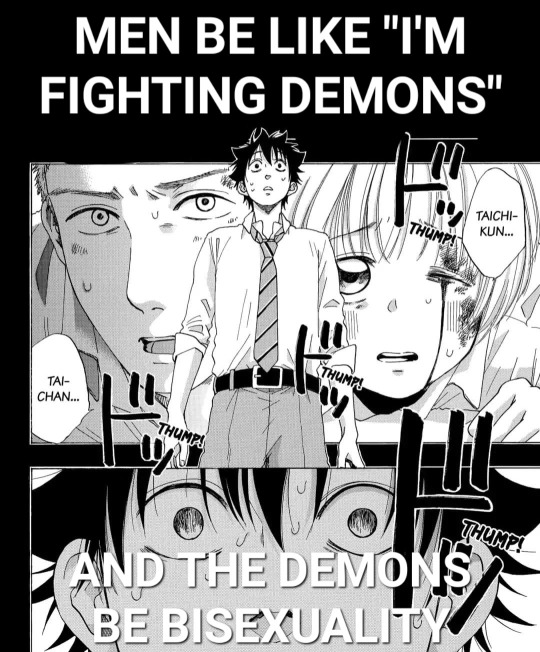
Blue flag basically
#blue flag#ao no flag#touma mita#toma mita#toma blue flag#taichi ichinose#futaba kuze#anime and manga#bisexuality#Blue flag? 😏 more like blue fa- *gets shot*#but seriously#i can't stop reading it as blue fag helppp 😭😭😭#Also i recommend everyone to read it#is kinda bittersweet and even though i despise love triangles i kinda like this one#specially since i remeber something that red from overly sarcastic productions said about “true triangles”#when character A likes character B Character B likes Character C and characted C likes Character A#and that it could never be a true triangle cause one of them be gay otherwise#so the fact this one WAS a true triangle#and it explored and called out some bs about society and heteronormativity#but also subtly brought aromanticism and asexuality in a way#and a little bit of transness#but the last one is just kind of a headcanon of mine lol#Also dude if i tell you i actually screamed and was kicking my feet at the end#i did not expect it AT ALL#i feel like this one and stars align will always hold a special place in my heart now#is weird for manga to make me cry so this one kinda surprised me too#also IT HAS A HAPPY ENDING#there were some stuff that pissed me off but they were minimal#lgbtq#btw this meme is lowkey canon just so you know like i won't say spoilers but believe me when i say it's kinda canon
90 notes
·
View notes
Text

Snikt family go stargazing!
#snikt fam#wolverine#Logan#Laura Kinney#gabby Kinney#akihiro#x-men#x-men fanart#hotclaws art#this was inspired by Yotsuba Ch 31#Yotsuba is this manga about this little girl growing up#it’s not comic that overlaps much with Wolverine comics#but I do recommend it if you need something wholesome between all of the angsty wolverine stuff#anyway#I hope you enjoy them having a peaceful time in the mountains
100 notes
·
View notes
Text
Shoutout to the youtuber maraganger. It's a pretty small channel that's mostly about niche media that's unconventional or just downright weird.
For example, here's a one-hour-long video about the game HYLICS (which was made by fellow tumblr user Mason Lindroth btw).
youtube
#the and stuff part of manga and stuff#not all that manga related#manga and stuff recommends stuff#Youtube
40 notes
·
View notes
Text
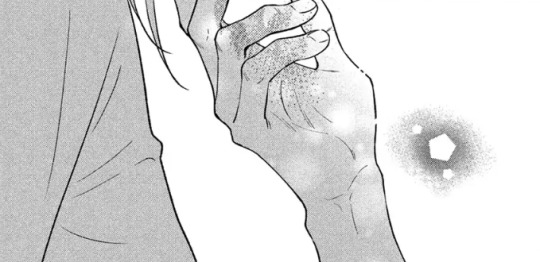

Source: Choking on Love (Museru kurai no Ai wo Ageru/むせるくらいの愛をあげる)
by Keiko Iwashita
#museru kurai no ai o ageru#choking on love#keiko iwashita#shoujo manga#iwashita keiko#romance manga#manga cap#manga and stuff#manga panel#manga aesthetic#manga recommendation#manga#art#mangacap#manga girl#manga boy#romance#black and white#i really like them#adult cast
512 notes
·
View notes
Text
A Quick History of BL
As someone who wrote a thesis on this very subject a few years ago, here is the short version of how BL has evolved throughout the years. For the new comers ❤
a minute of silence for the original form of this post that tumblr decied to not save right after I saved it
I am going to go with a chronological approach. Unfortunately, I cannot put everything in one post so if there’s any questions about this or that aspect of the history of BL that you want to know and it’s not talked about here, you are welcome to ask me directly :)
Context and influences - Japan in the 60′s
Before the US forced Japan to open its borders to the outside world in the 1800s, homosexual practices were common place between budist monks, samurais and kabuki actors. During the Edo period (1600s to 1800s) there was a very rich amount of poetry, art, books (such as Nanshoku Okagami (The Great Mirror of Male Love) by Ihara Saikaku) and codes of conduct about how to have a good master/aprentice relationship, kinda like the greeks if you know what I mean. However, with the arrival of western influences, in order to become a more “civilized” country, it was all put in the closet.
Yet, in the 60′s Japan started to pick it up again through literature about young androginous beautiful boys (aka bishounen). On one hand, in 1961, the novel Koibitotachi no Mori (A Lover’s Forest) by Mari Mori was published. It tells the story of a young and beautiful 19 year old worker and a half french half japanese aristocrat, and their tragic romance. On the other hand, Taruho Inagaki wrote Shounen ai no Bigaku (The esthetics of boy-love), an essay on aesthetic eroticism (of which he wrote a lot of). All this was know as Tanbi (lit. aesthetic) literature. It generally refered to literature with implied homosexuality and homoeroticism such as works by Oscar Wilde, Jean Cocteau, etc. And of course, Mori and Inagaki.
In chinese tanbi is read as danmei (term used to refer to BL novels in china today, ie: The Untamed it’s all connected friends).
From the birth of Shonen Ai to Yaoi - 70′s to the late 80′s
Around the beginning of the 70′s, shoujo was being revolutionized by the Year 24 Group, a generation of women manga authors (mangaka) who started to explore new themes. Among them, their interest in tanbi gave birth to a new subgenre: Shounen ai.
Their most known manga were:
Kaze to Ki no Uta (The Ballad of the Wind and Trees) by Keiko Takemiya, and Toma no Shinzo (The Heart of Thomas) by Moto Hagio
Their stories are characterized by having suffering eurpoean bishounen in boarding schools, living an idealized perfect love (meaning passionate) that, despite the tragic end of one of them, lives forever in the other.
As this genre starts getting popular, more and more fans of these stories start making their own self published manga, aka doujinshi, of the genre. It is around this time that the term Yaoi is coined. Meaning “YAma nashi, Ochi nashi, Imi nashi” (no climax, no fall, no meaning). Basically PWP fanfiction, for the most part. Doujinshis could be considered an equivalent of fanfiction in manga form. It is also here that the term Fujoshi (aka Rotten Girl, for liking rotten things) starts being used to refer to women readers of yaoi.
With this rise in popularity come the start of the commercialization of the genre. Which meant the publication of magazines dedicated solely to yaoi/shonen ai/BL. The most popular yaoi manga magazine at the time was June. The common trait of their stories being the therapeutic power of the love between the mains. The traumatized character would heal throught this newfound love.
Most of the stories at this time happened in the West (Europe or the States) as the exploration of these dark themes intertwined with homosexual romance and homoeroticism still feel safer to explore as a foreign concept. One example would be Banana Fish (1985).
Commercialization and Yaoi Ronso - 90′s
As more publishing houses pick the genre up, the term Boys Love is used to include every type of manga about homosexuality made for women.
The increasing amount of BL series sees a changes in its themes:
the start of the “gay for you” trope where one mantains their heterosexuality despite being in a homsexual relationship,
the uke/seme dynamic (mirroring hetero realtionships) also relating to physical appearence (one being more feminine, the other being more masculine),
the use of rape as an act love (sexual violence has always been present but here it becomes a staple),
anal sex as the only type of sex,
older and more masculine men start to appear
they now happen in Japan
Good examples of the presence of these themes in manga are Gravitation (1996) or Yatteranneeze (1995).
However in 1992, Masaki Sato (a gay activist/drag queen) wrote a letter in a small scale feminist magazine attacking yaoi and pointing out how it “represented a kind of misappropriation or distortion of gay life that impacted negatively upon Japanese gay men”. The female readers of yaoi responded, defending the genre as a means to escape gender roles and explore sexual themes that was never meant to represent the realities of gay men. This is know as the Yaoi Ronso (Yaoi Debates).
The debate ended with both sides understanding more of each other, with mangakas starting to include queer views in their works. It also started the academic reasearch of BL.
Yet, it is a debate that has been restarted more than once, as it is still relevant despite the evolution of the genre.
more on this on another post
Globalization and coining of BL - 2000′s
By the beginning of the 2000s BL is being sold all over the world (like all manga), and has become a stable industry. We could say it has finally become it’s own genre.
Some of the most well known manga series, to us (in the west), of the time are:
Junjou Romantica 2002 Koi Suru Boukun 2004 Love Pistols 2004 Haru wo Daiteita 1999
all of these have anime adaptations for the curious ones
We also start seeing short anime adaptations or special episodes of the most popular series, with questionable themes, such as: adoptive father x adoptive son (Papa to Kiss in the Dark 2005), father x son’s friend (Kirepapa 2008), etc...
However the themes remain more or less the same. Junjou Romantica’s love story starts with a non-con sex scene by the older one (masc, seme) to the younger one (more feminine, uke) addressed years later in the manga btw. Koi Suru Boukun’s love story is triggered by aphrodisiacs and rape. They’re still very present in the stories but slowly going away. A mangaka that represents this era could be Natsume Isaku (Candy Color Paradox 2010).
Change is slow in Japan. Even though the voices of LGBT+ people started to be taken into account in the genre it is not until later that we see it reflect in the mangas themselves. However, we can already see the start of this in Doukyusei (Classmates) (2006) by Asumiko Nakamura. Also Kinou Nani Tabeta? (2007) which is actually part of a more mature genre: Seinen.
It is my personal (subjective) theory that the BL of this era was the one that got popular outside of Japan, which is why we see lots of references to the themes, tropes and dynamics of this time in today’s BL series.
The LGBTzation of BL and the rise of webtoons - 2010′s to 2020′s
Slowly but surely LGBT characters and themes enter the scene of BL. Existing simultaneously with the previous tropes and themes, we start seeing a shift in these stories. We now see:
characters that identify as gay or some type of queer
discussions about homophobia
more mature themes about life and romance
At the same time as we get the usual love stories with the usual themes, a new trend starts to take over. And we get simultaneously, cute, sometimes questionable but light love stories:
Love Stage 2010 Ashita wa Docchi da! 2011 Kieta Hatsukoi 2019
More profound stories and darker or more complex themes:
Blue Sky Complex 2013 Saezuru Tori wa Habatakanai 2011 (mafias) Given 2013 (suicide) Hidamari ga Kikoeru 2013 (deafness)
And others that adress the queer experience in a more mature way (which might actually fall into the Seinen genre)
Itoshi no Nekokke 2010 (slice of life, queer characters) Smells like Green Spirit 2011 (two ways to deal with a homphobic society) Strange 2014 (relationships between men) Shimanami Tasogare 2015 (an LGBT group helps a closeted gay) Old Fashioned Cupcake 2019 (you know this one 😉) Bokura no Micro na Shuumatsu 2020 (the end of the world)
As queer stories are explored, BL mangakas and mangakas from other genres start to consider more stories about queer people such as the Josei Genderless Danshi ni Aisaretemasu (My Androgynous Boyfriend) (2018) by Tamekou, or the Shoujo Goukon ni Itarra Onna ga Inakatta Hanashi (The story of when I went to a mixer and there were no women) (2021) by Nana Aokawa.
Still, we can see two realities live side by side. Doukyuusei gets adapted into an impactful animated movie in 2016, meanwhile Banana Fish gets an anime adaptation that keeps the homoeroticism but not the homosexuality.
For those who might be interested. Here are some of the authors that represent the first half of this era, where they start to include newer points of view:
Scarlet Beriko, HAYAKAWA Nojiko, KURAHASHI Tomo, OGERETSU Tanaka, Harada, KII Kanna (Stranger by the Sea), etc...
And authors that while keeping classical themes break the stereotypes in a subtle manner:
CTK, ZAKK, Jyanome, Cocomi, Hidebu Takahashi, SUZUMARU Minta, etc...
Mangakas also no longer stick to one genre only. They explore whichever of them they want, from BL to Seinen to others.
ie: Tamekou,
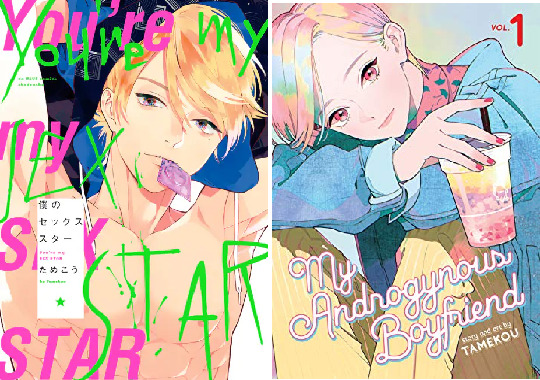
or Asumiko Nakamura

The curious case of Webtoons
With the digitalization of mangas, throught Renta and Lehzin, it has become easier (and more expensive) to access these stories. Korea makes and appearence with their webtoons. Through the lack of piracy protections and the majority of them being digital, manhwa (korean webtoons) sees a rise in popularity. Through the digital medium the influencee can be the influencer.
However, like many other East Asian countries they have consumed BL, without hearing about the conversations about BL. So they end up mantaining the older themes and stereotypes that newer BL is trying to leave behind. Therefore, we end up with a mix of old and new, ie:
Killing Stalking 2016 Cherry Blossoms After Winter 2017 Painter of The Night 2019
Additionally, it is also thanks to the easy access to internet that Omegaverse, with its higher dramatic stakes (that parallel hetero dynamics), enters the mangasphere in 2016. It has grown in popularity ever since.
With the Thai BL Boom of 2020, Japan rediscovers its own BL market and starts investing in it more. Which is why we get live action adaptations of BL manga that was popular years ago (Candy Color Paradox was a manga from 2010), the more recent ones (The End of the World With You) or new anime adaptations (Saezuru Tori wa Habatakanai in 2020).
more on this in my japanese live action BL post
What has it become now? is it BL? ML? or Seinen? Or is it all just gay manga?
It is clear that Shoujo manga (with BL, Josei and Seinen) is exploring queer themes such as gender and sexuality more and more. Japan is interested in this conversation, not only in manga (Genderless fashion). Which brings up the current question in BL studies: Does it make sense to keep these categories?
As a response to BL, ML (Male Love), which is made by gay men for gay men, started happening (around the 70s too). And Bara (gay manga porn) in response to Yaoi. However both gay men and women read BL and ML. We also see other themes being explored through BL, such as friendship (in BL Metamorphose), food (in Kinou Nani Tabeta), male relationships of all kinds (in Strange), and different queer views on life and its challenges (in Shimanami Tasogare). More and more what is LGBT and what is BL is merging, the line is blurred.
Conclusion
BL has been in my life for longer than it hasn't. It is through shoujo and BL that I have come to understand people and romance.
It is flawed, like everything else this life, but it's flourishing in many ways.
The genre feels old and new at the same time.
We can still find shounen ai/tanbi elements in more modern manga (All About J). Or the gay for you in a new light (Itoshi no Nekkoke). Or more educational manga on queer issues (My Brother’s Husband by Gengoroh Tagame). BL has around 50 years of existence but it is also being born anew in Thailand and Korea.
BL manga will continue to evolve in acordance to Japanese tastes, as it is still a local market. Hopefully the korean webtoons that get popular will be the more daring ones in their themes. Who knows where it will go from here? The only thing we know for sure is that it will continue to change. Isn't it exciting?
A post on the evolution of live action BL in Japan is coming, to complement this post. As well as a more detailed explanation of the Yaoi Debates and gay manga.
#history of bl#bl post series#I feel like I left too much stuff out#I hope it makes sense#honestly I would really recommend reading some of those manga#they're super interesting#soon it'll be 20 years since I started reading BL#my gosh#if theres anything anyone wants to know more about#I'd love to write more :)#yaoi manga#bl manga
738 notes
·
View notes
Text
name: I RAISED A TIGER CUB
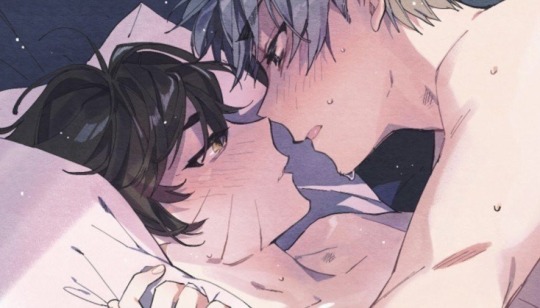

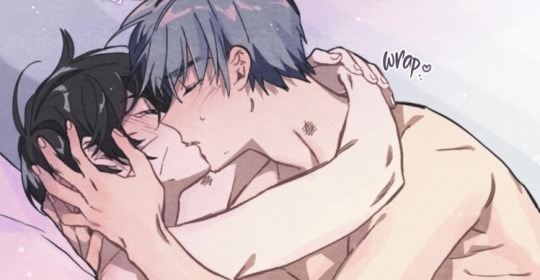
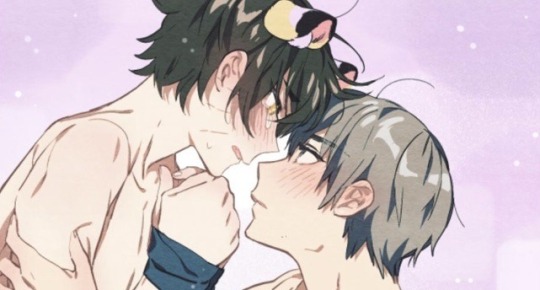
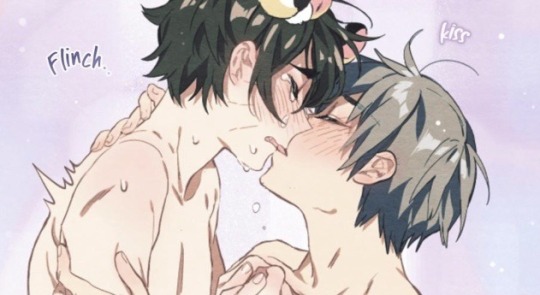
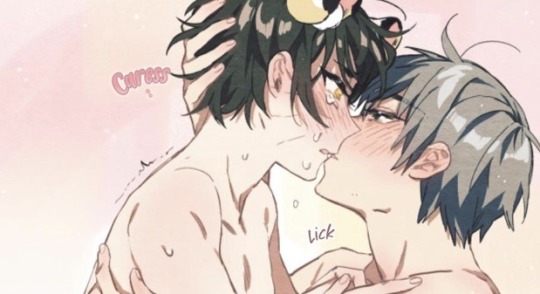
#i raised a tiger cub#yaoi#yaoi bl#manga#yaoi manhwa#boys love#lgbtq#lgbt#gay#gaypride#shounen ai couple#gay ships#fandom ships#shounen ai#ships#manga yaoi#yaoi love#yaoi manga#colored manga#manhua#manhwa#bl manhwa#bl manga#boys love manga#manga and stuff#manga aesthetic#yaoi comic#yaoi recommendation#manhwa bl#bl recommendation
581 notes
·
View notes
